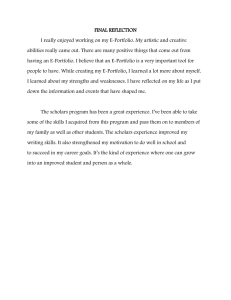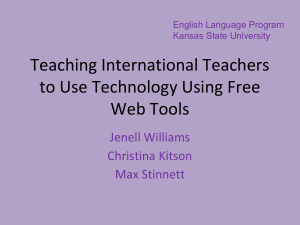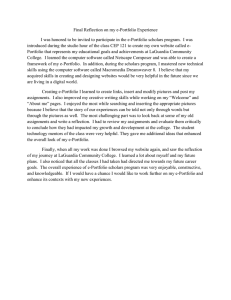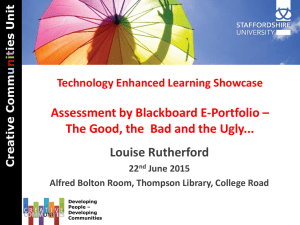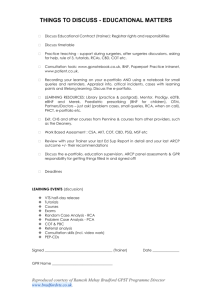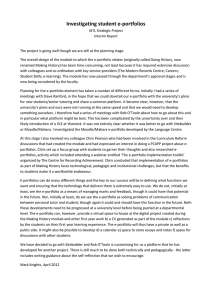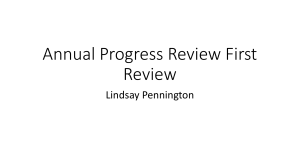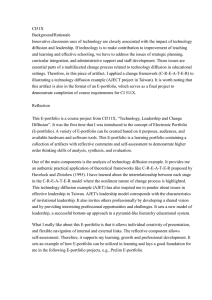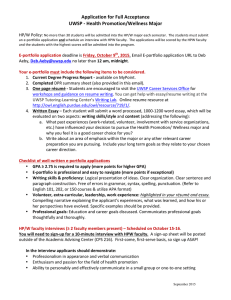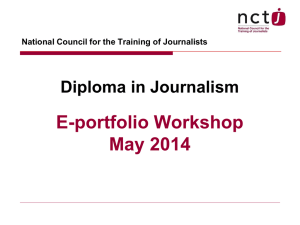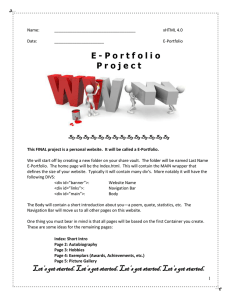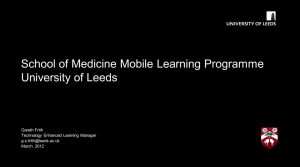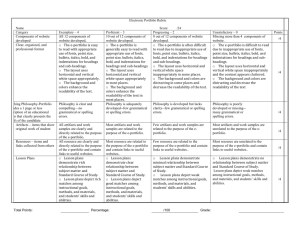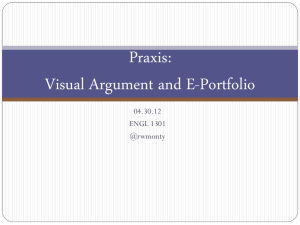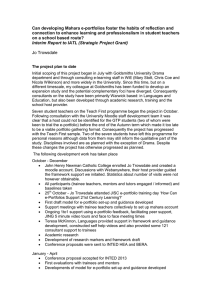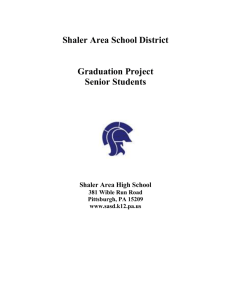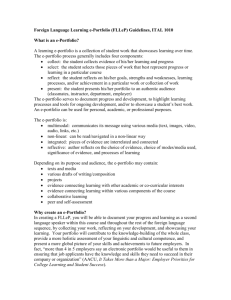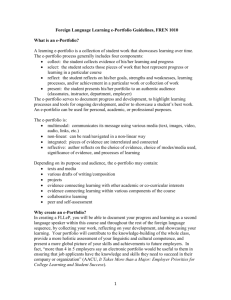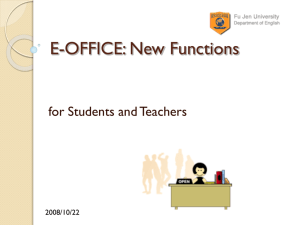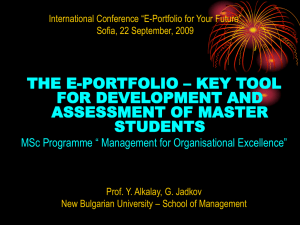Buena Vista University, Storm Lake, IA Carnegie Classification: Bac
advertisement
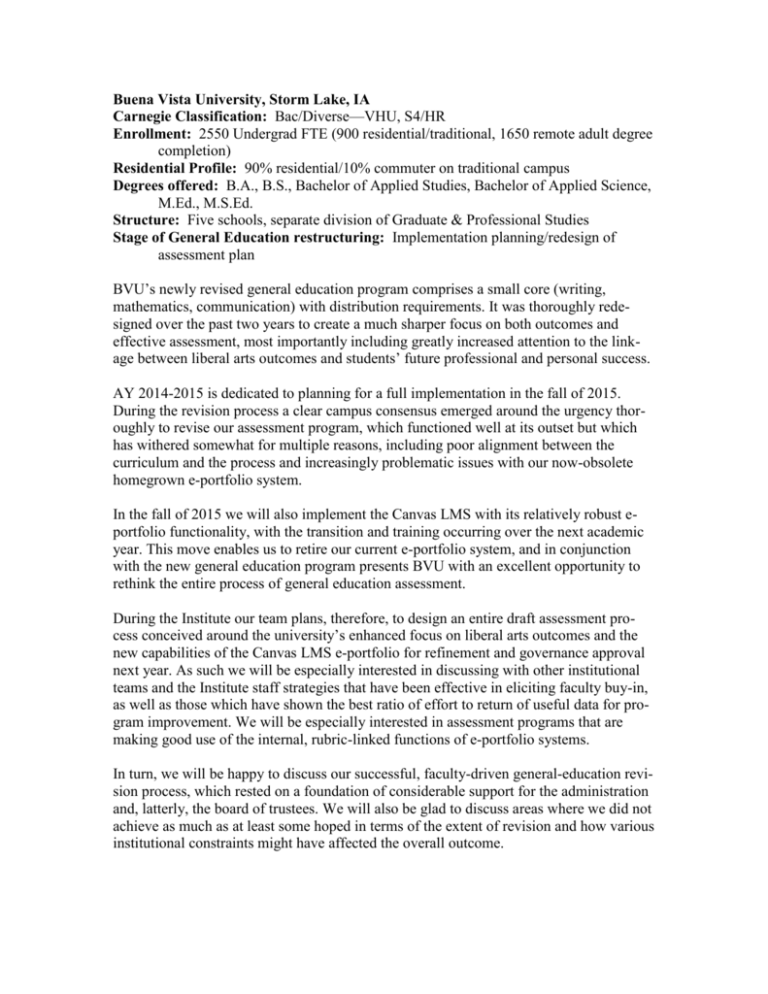
Buena Vista University, Storm Lake, IA Carnegie Classification: Bac/Diverse—VHU, S4/HR Enrollment: 2550 Undergrad FTE (900 residential/traditional, 1650 remote adult degree completion) Residential Profile: 90% residential/10% commuter on traditional campus Degrees offered: B.A., B.S., Bachelor of Applied Studies, Bachelor of Applied Science, M.Ed., M.S.Ed. Structure: Five schools, separate division of Graduate & Professional Studies Stage of General Education restructuring: Implementation planning/redesign of assessment plan BVU’s newly revised general education program comprises a small core (writing, mathematics, communication) with distribution requirements. It was thoroughly redesigned over the past two years to create a much sharper focus on both outcomes and effective assessment, most importantly including greatly increased attention to the linkage between liberal arts outcomes and students’ future professional and personal success. AY 2014-2015 is dedicated to planning for a full implementation in the fall of 2015. During the revision process a clear campus consensus emerged around the urgency thoroughly to revise our assessment program, which functioned well at its outset but which has withered somewhat for multiple reasons, including poor alignment between the curriculum and the process and increasingly problematic issues with our now-obsolete homegrown e-portfolio system. In the fall of 2015 we will also implement the Canvas LMS with its relatively robust eportfolio functionality, with the transition and training occurring over the next academic year. This move enables us to retire our current e-portfolio system, and in conjunction with the new general education program presents BVU with an excellent opportunity to rethink the entire process of general education assessment. During the Institute our team plans, therefore, to design an entire draft assessment process conceived around the university’s enhanced focus on liberal arts outcomes and the new capabilities of the Canvas LMS e-portfolio for refinement and governance approval next year. As such we will be especially interested in discussing with other institutional teams and the Institute staff strategies that have been effective in eliciting faculty buy-in, as well as those which have shown the best ratio of effort to return of useful data for program improvement. We will be especially interested in assessment programs that are making good use of the internal, rubric-linked functions of e-portfolio systems. In turn, we will be happy to discuss our successful, faculty-driven general-education revision process, which rested on a foundation of considerable support for the administration and, latterly, the board of trustees. We will also be glad to discuss areas where we did not achieve as much as at least some hoped in terms of the extent of revision and how various institutional constraints might have affected the overall outcome.
